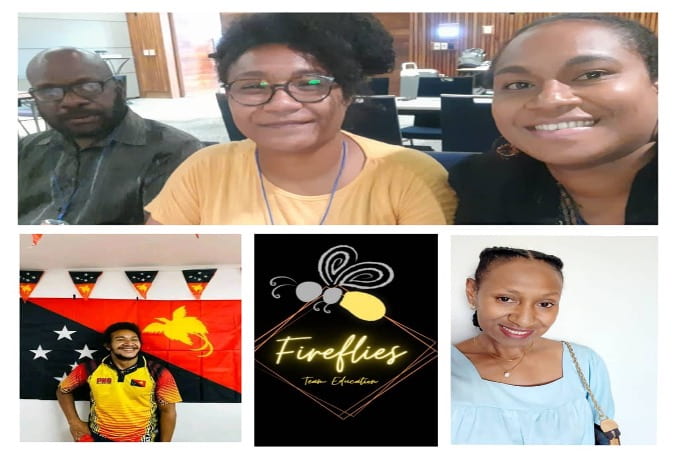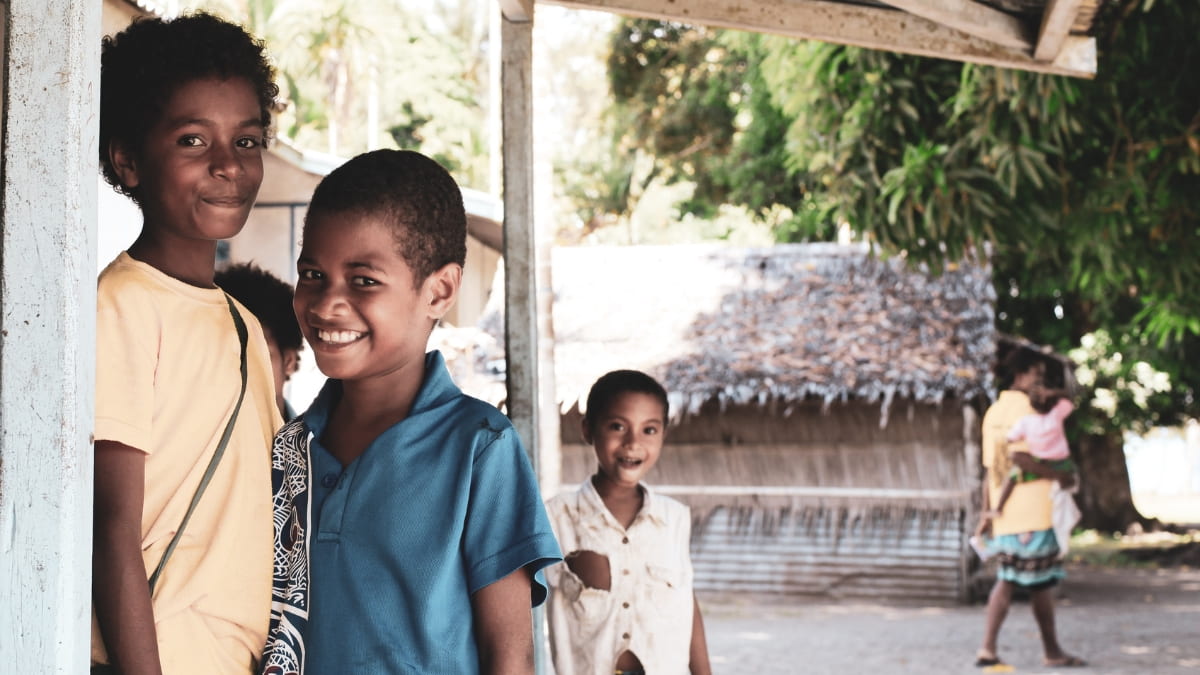Guest blog by Claire Asi, Valda Kerua, Melchior Sebelei, Michael Asi
Over the past 12-weeks we worked on the problem of Poor Literacy Outcomes for Elementary Education in the Autonomous Region of Bougainville.

The recurring issue that kept popping up in our conversations was Cause 1: Lack of qualified teachers, and sub- cause: teacher training programs have a low benchmark for recruiting teachers.
There is a lot of potential for education stakeholders to find PDIA tools useful, but not much time was invested in how best to apply the tools in real life. As Melanesians, we still prioritize ticking off our checklist by having conversations with different agents and authorities and using the dialogue from those discussions to give us insight into the problem. The discipline to have detailed logging of our activities no matter how small is a skill and habit that will need to be developed over time.
Those insights help to build and maintain authorization and acceptance of our organizations when we find entry points into particular sub-causes that are close to our authority and ability. Finding common ground and shared interest is more for strategic engagement. This will affect the type of trust triangle we have.
Individual members have confidence about how they can apply PDIA in their line of work, but building acceptance for greater collaboration based on the learnings and reflections in the program as the PDIA Education Team will take some time. Approaches will change based on the continuous reviewing of our activities to learn, reflect, evaluate and strategize.
Successful iteration comes with us being more self-aware of the limitations to our thinking, rethinking new ways of approaching a problem, being more self-aware of our habits and norms that may get in the way, respecting the process, being able to distinguish what is a novelty and what is realistic, developing the habit to think through and discipline me to have some time to chronicle my daily activities, identify the emerging system and design context-specific tools using PDIA tools as a guide.
“Communication is key. Empowering and appreciating fellow team members is key. Building trust is key.”
– Claire Asi
Here is how we are using what we learned in this program:
- Melchior: With all the knowledge and skills learned, I’m planning to conduct a workshop/in-service with all my head teachers and the Board of Management in all my Primary and Elementary schools in my district. They can be equipped with the skills so they can solve problems at their levels. I also planned for a workshop to assist my community government members, and village leaders to also equipped them with at least some knowledge and skills of the PDIA process so they can use it to solve issues at their level. Finally, I will now use the tools to tackle some of the pressing issues in the district regarding district education.
- Valda: I’ll use what I have learned to help redefine problems and make them more specific. There are instances when trying to approach a problem the problem statement is too broad this will defiantly assist me in clearly defining my problem statements. I hope to go back to some of the work to see if I could have written my problem statement.
- Michael: I plan to use the course in helping those around me and ultimately for nation-building. In every exercise or opportunity to create change, I will always apply the PDIA process and everything that I have learned in this course.
- Claire: I plan on applying the learnings of PDIA to my work in program and project management, policy framing, analysis, and advice, in the various sectors of development that I work in as a political officer, research consultant, youth development practitioner, systems thinker, etc.
Our words of wisdom for fellow PDIA practitioners around the world
- Self-Discipline and Consistency in applying a step-by-step process to integrate the PDIA approach to one’s work benefit the team as a whole.
- PDIA is not about individual approaches, teaming is at the heart of it. It is a shared responsibility through collaborative leadership at different levels but it requires more genuine and authentic ways to engage with each other in addressing the problem.
This blog was written by participants who completed a 12-week PDIA for PNG online action-learning program from September – December 2022. 31 participants successfully completed this program.
